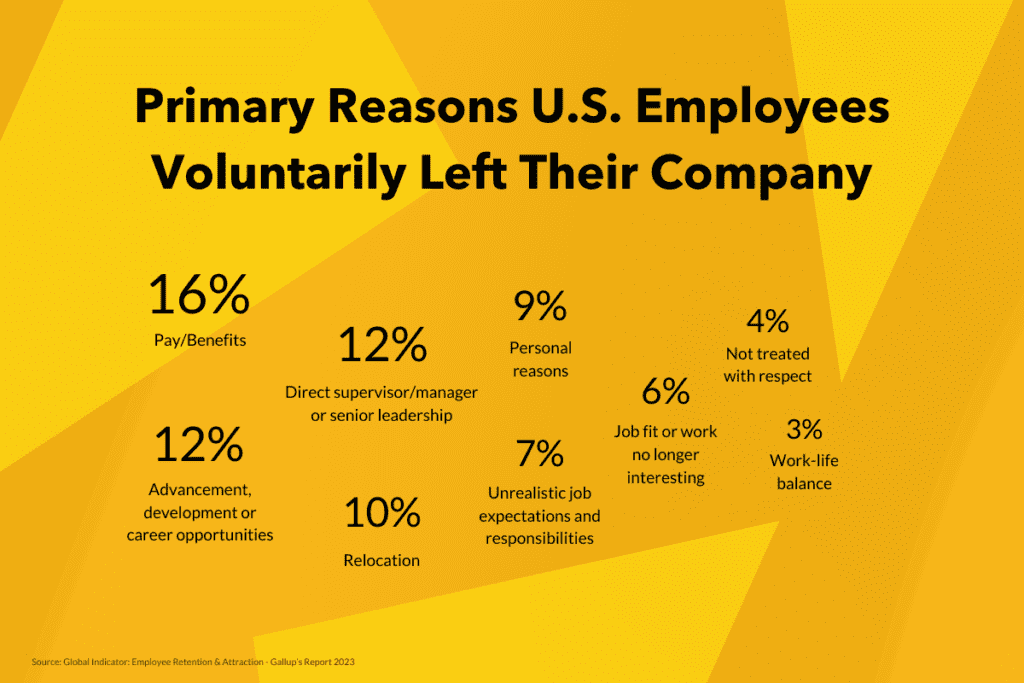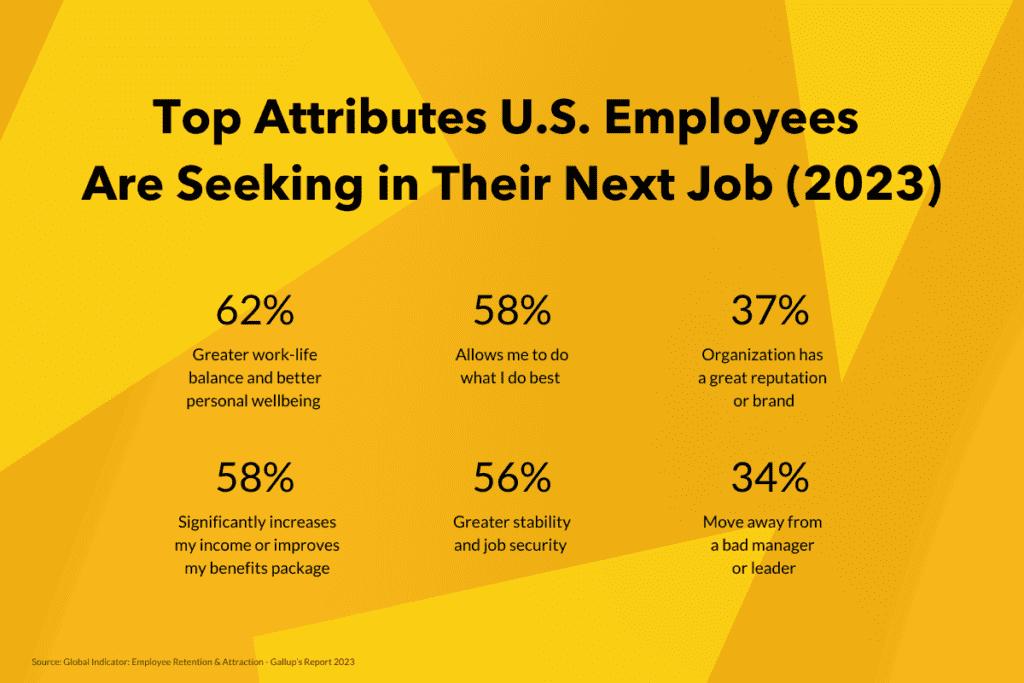Share this:
Employee retention isn’t just a box to tick—it’s the backbone of a thriving company. Beyond paychecks and perks, it’s about creating an environment where people feel valued, challenged, and genuinely excited to stay. So, how do you foster that kind of commitment? In this article, we’ll take a closer look at what employee retention really means and share eight practical strategies that go beyond the usual advice, helping you build a workplace where talent wants to stick around for all the right reasons.
What is Employee Retention?
Employee retention refers to an organization’s efforts to keep its employees over the long term, minimizing turnover and fostering a stable workforce. High retention rates signal a healthy work environment where employees feel engaged, satisfied, and valued. On the other hand, low retention rates indicate potential issues such as dissatisfaction, lack of growth opportunities, or poor management. Retaining employees is crucial to reduce hiring costs, maintain productivity, and ensure the continuity of skills and knowledge within the organization. According to Gallup, 42% of employee turnover is preventable with the right management and engagement strategies.

Why is employee retention important?
Employee retention is vital for business success. High turnover disrupts workflows, increases costs associated with recruitment and training, and weakens team cohesion. Companies with strong retention strategies benefit from enhanced employee engagement, higher productivity, and better financial performance. According to Employee retention is vital for business success. High turnover disrupts workflows, increases costs associated with recruitment and training, and weakens team cohesion. Companies with strong retention strategies benefit from enhanced employee engagement, higher productivity, and better financial performance. According to Gallup, organizations with highly engaged employees are 21% more profitable and 17% more productive. A stable workforce also improves customer satisfaction and helps maintain a positive company culture.

8 Proven Strategies to Boost Employee Retention
1. Offer Competitive Compensation and Benefits
One of the strongest drivers of employee retention is competitive compensation. Companies that offer above-market salaries and robust benefits packages, including health insurance, retirement plans, and performance-based bonuses, are more likely to retain employees long-term. According to research by Payscale, businesses with above-average compensation are 50% more likely to hold onto their employees. Regularly reviewing compensation packages helps ensure they remain competitive within industry standards, boosting both retention and satisfaction.
💡 Conduct annual reviews of compensation and benefits to ensure
they remain competitive with industry standards.
2. Create Clear Career Growth Paths
Employees are more likely to stay with an organization when they see a clear path for advancement. According to LinkedIn’s 2023 Workforce Learning Report, 94% of employees would stay longer if their company invested in their development. Career progression opportunities such as leadership training, structured promotions, and mentorship programs provide employees with a vision for their future within the company, increasing both loyalty and retention.
💡 Create individual career development plans (IDPs) to map out
clear opportunities for professional growth within your organization.
3. Foster a Positive and Inclusive Work Culture
A company’s culture significantly impacts employee retention. Employees who feel valued and included in a positive, collaborative work environment are far more likely to stay engaged. Research by Deloitte highlights that inclusive companies are six times more likely to be innovative and twice as likely to meet or exceed financial targets. Prioritizing inclusivity, respect, and mutual collaboration creates a supportive atmosphere that encourages employees to stay.
💡 Conduct regular employee surveys to gauge workplace culture
and implement changes based on feedback.

4. Offer Flexible Work Arrangements
Flexibility in when and where employees work has become a key factor in retention. According to McKinsey’s 2022 report on hybrid work, 52% of employees prefer a hybrid model, allowing them to balance office and remote work. Offering flexible working options reduces stress, enhances work-life balance, and significantly improves job satisfaction and retention. While some roles require in-person presence, many tasks can be performed remotely, giving companies a chance to implement hybrid work policies.
💡 Implement hybrid work policies that provide flexibility
while meeting the needs of the lab and on-site roles.
5. Recognize and Reward Employee Achievements
Recognition is a powerful tool for boosting employee retention. Gallup’s research shows that employees who feel recognized are twice as likely to stay with their employers. Formal recognition programs, performance awards, and even informal team shout-outs can increase morale and loyalty. Celebrating small wins and significant achievements alike keeps employees motivated and invested in the company’s success.
💡 Create a recognition program where employees can nominate colleagues
for contributions, and leadership can publicly celebrate successes.
6. Promote Work-Life Balance
Work-life balance is critical to preventing burnout, which is a key reason employees leave their jobs. According to the American Psychological Association (APA), employees who report a healthy work-life balance are 25% less likely to leave their jobs. Offering flexible hours, mental health resources, and ample paid time off (PTO) can help prevent burnout, improving both retention and employee satisfaction.
💡 Encourage employees to take regular vacations and implement policies
that protect time off, ensuring that workloads are manageable.

7. Invest in Continuous Learning and Development
Investing in employee learning and development is a crucial factor in retention. A 2023 report from the Association for Talent Development (ATD) revealed that companies that invest in professional growth see 24% higher profit margins and stronger employee retention. Offering ongoing education, training programs, and certifications not only helps employees advance in their careers but also keeps the company competitive by ensuring its workforce is continually growing.
💡 Partner with universities and industry organizations to offer employees opportunities
for further education, certifications, and attendance at industry conferences.
8. Develop Empathetic and Transparent Leadership
Leadership plays a pivotal role in employee retention. Gallup’s research shows that employees who rate their managers as good leaders are 70% less likely to leave. Empathetic and transparent leadership fosters trust, reduces stress, and inspires loyalty among employees. Leaders who demonstrate emotional intelligence and actively listen to their teams create a positive and productive work environment that encourages employees to stay long-term.
💡 Invest in leadership training programs that focus on communication,
emotional intelligence, and management skills.

Retaining top talent requires a multifaceted approach that addresses compensation, career growth, culture, and leadership. By implementing these eight proven strategies, life sciences companies can create a work environment that supports employee well-being, fosters professional development, and ensures long-term commitment. Ultimately, a focus on employee retention leads to more innovative research, faster project completion, and sustained organizational success.